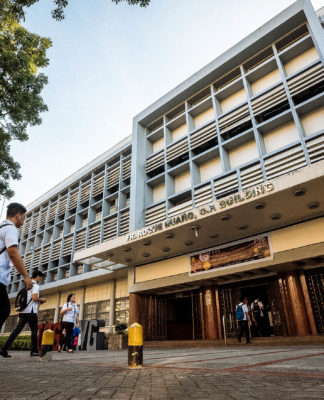 JUST recently, National Artist for Literature Francisco Sionil Jose caught concerned Filipinos off-guard as his opinion piece “Why We Are Shallow?” published in Philippine Star made them ponder about the preponderance of shallow thinking emanating in the society.
JUST recently, National Artist for Literature Francisco Sionil Jose caught concerned Filipinos off-guard as his opinion piece “Why We Are Shallow?” published in Philippine Star made them ponder about the preponderance of shallow thinking emanating in the society.
In a way, he was able to awaken the Filipino’s sleeping enthusiasm to learn and to think out of the box, through the honest and concrete statements he used. He blamed the influences of modernization and globalization—primarily technology and that of the media—for the gradual loss of the individual’s aspiration to transcend shallowness and practice critical thinking.
In retrospect, this shallow thinking has become a plague that slowly eats up the Philippine society. It has affected each and every person’s psyche, not to mention her efficiency and the products she produces, for she has become easily contented with the mediocre and the second-best.
It pains us more to see that this shallowness has paralyzed even those whom we expect will carry the nation to progress. Members of the Congress, for instance, have been so shallow these days as manifested by the kind of bills they propose in the legislature.
***
Quezon City Rep. Winston Castelo is under fire for the proposed “Anti-Planking Act of 2011,” critics say the bill meant the practice of protesters of lying face down in a public street, is unnecessary.
Critics say focusing on trivial matters, lawmakers must prioritize crafting socially relevant laws that will pose beneficial effects to the lives of each and every Filipino.
Another bill of the same kind proposed in the legislature include Senate Bill 2179 or “An Act limiting the amount of weight of bags carried by children in school and implementing proactive measures to protect school children’s health from the adverse effect of heavy school bag” by Sen. Lito Lapid.
Under this proposed bill, Lapid bans the overloading of school bags for its possible negative effects on children’s health. In an article published in the Philippine Daily Inquirer, he noted that overloaded school bags may cause “chronic, low-level trauma” if students are “exposed to this practice over a long period since spinal ligaments and muscles are not fully developed until after 16 years of life.”
The above-mentioned bills prove Sionil’s premise that Filipinos are becoming shallower through the years. Lawmakers for instance tend to focus on irrelevant things amid deeper and bigger issues hounding the society.
Brought by this trend, government branches are turning into a carnival of sorts wherein lawmakers and administrators alike are turning into shallow jesters who take their positions for granted by focusing on insignificant matters than those that really require attention.
Shallowness might really stand evident with the way Filipinos think nowadays. However, it is important to note that people could not live in dire shallowness. Something must be done—but what in particular? Only a personal assessment of one’s strength and weaknesses can provide the answer.
In this fast-paced barrage of shallow thinking and lifestyle, each of us must face the challenge of bringing back the kind of thinking done by our old heroes during their time. The Filipino race could not go on with dire shallowness haunting its side. Echoing what Sionil said, “This shallowness is the impediment to prosperity, and men of goodwill should emphasize this and take risks even in doing so.”

















